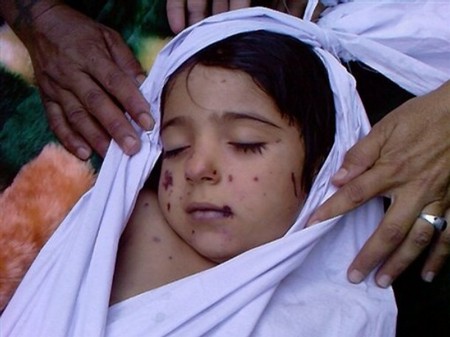SPIN BOLDAK - Seven years after the attacks on New York and Washington, the event that sparked off the U.S.-led invasion of Afghanistan, many Afghans say life is no better and some say its worse.

Following the overthrow of the hardline Islamist Taliban in late 2001 by U.S.-led and Afghan forces, Afghans hoped their country, ravaged by decades of war, would finally see peace.
But with al Qaeda chief Osama bin Laden still on the loose, a worsening security situation and the slow pace of development, Afghans have become disillusioned and frustrated.
A recent spate of civilian deaths caused by U.S.-led air strikes has added salt to their wounds.
"After the 9/11 attacks, when the U.S. and her allies overthrew the Taliban government, the U.S. promised the Afghan nation stability, safety and jobs," Haji Allah Dad, a 60-year-old trader in the southern town of Spin Boldak, said.
"But they have done nothing for us. They drop bombs on the civilian population and have killed thousands of Afghans in the last seven years, while the Taliban get stronger day by day."
Spin Boldak is a bustling town in the southern province of Kandahar, the spiritual home of the Taliban and where the militant group still draws much of its support.
In February, a suicide bomber in Spin Boldak killed 37 civilians and wounded 30 more. The attack came just one day after another bomber killed more than 100 people in Kandahar city.
"We feel no change in our lives," said Mohammad Usman, a 40-year-old shopkeeper from Spin Boldak.
"They (foreign forces) are not the enemy of the Taliban, they are the enemy of the Afghan people. The U.S. army calls us al Qaeda and kills us but we don't know what al-Qaeda is."
CIVILIAN CASUALTIES

Violence has surged in Afghanistan over the last three years with more than 2,500 people killed, including 1,000 civilians, in the first six months of this year alone, aid agencies say.
While most civilians are killed in insurgent attacks, usually bystanders in suicide blasts, it is the killing of ordinary Afghans by foreign forces that evokes the greatest emotions.
The issue has caused a rift between the Afghan government and its Western backers, and undermines public opinion for the continued presence of foreign forces in the country.
Ali Jan, a 30-year-old bearded man from Spin Boldak, wants the Taliban back because under them life was safer, he says.
"In those times there were no security problems. Now U.S. forces began killing Afghan civilians and destroying our country," said Ali Jan, adding that he had paid the Taliban money during this holy month of Ramadan.
"We are forced to help the Taliban against the occupying forces because the Taliban are Muslims and Afghans. They are fighting for the freedom of Afghanistan," he said.
Frustration at the country's deteriorating security is not confined to the volatile south. Taliban insurgents have been able to launch increasingly daring and deadly attacks inside the relative safety of Kabul.
"Life did change in the first years after the invasion," said Azim, a money-changer on one of Kabul's streets.
"But now security has become worse and people are escaping Afghanistan. If the insecurity continues, people will turn against the U.S. like they did against the Taliban."
(Writing by Jonathon Burch; Editing by Sanjeev Miglani and Alex Richardson)



